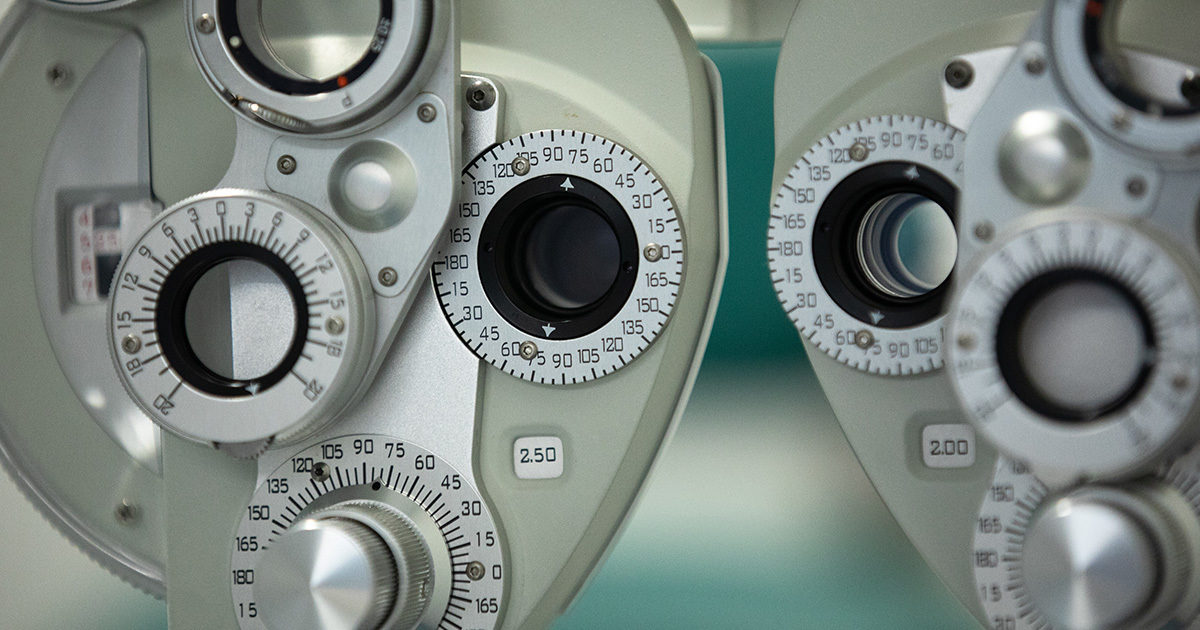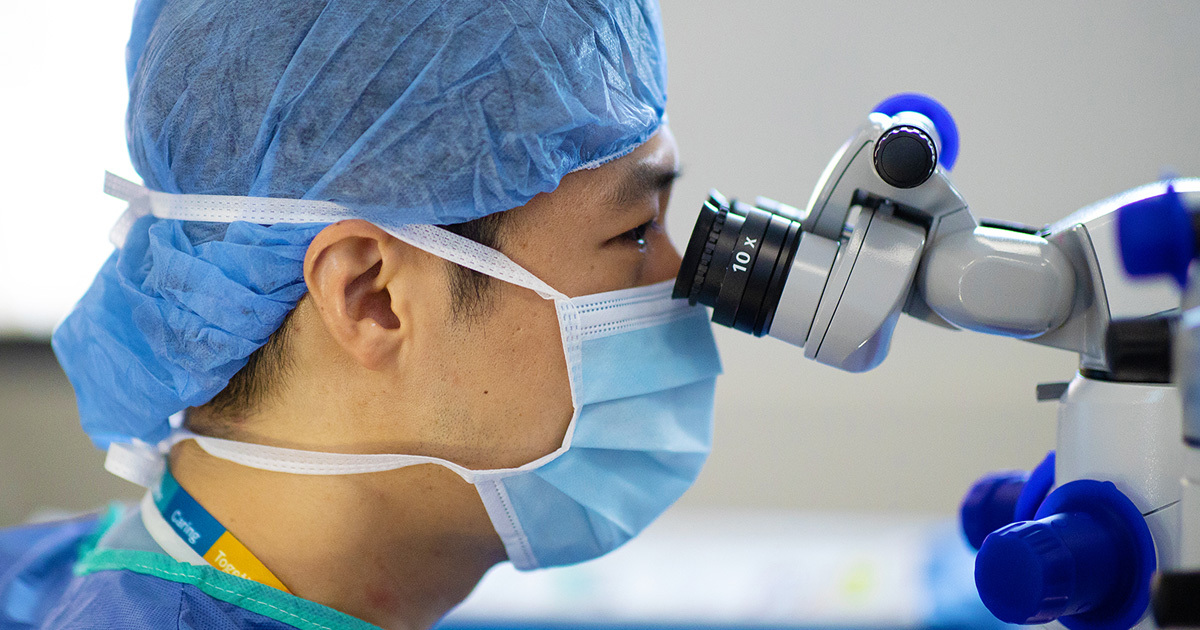The Mitchel and Shannon Wong Eye Institute Is Now Open
Providing specialized ophthalmic care to Central Texas and beyond
Reviewed by: Eileen Bowden, MD, and Eric Crowell, MD, MPH
Written by: Ashley Lawrence

On Monday, November 2, 2020, UT Health Austin’s Mitchel and Shannon Wong Eye Institute officially opened and began seeing patients. The Mitchel and Shannon Wong Eye Institute diagnoses, treats, and manages a wide range of eye conditions, from cataracts and diabetic retinopathy screenings to some of the most specialized ophthalmic care, using the latest diagnostic imaging and treatment modalities.
The academic medicine approach to eye care
The Mitchel and Shannon Wong Eye Institute was made possible through a generous gift from the Wong family. Both Mitchel Wong, MD, and his son, Shannon Wong, MD, are well-known ophthalmologists, and Dr. Mitchel Wong is an alumnus of The University of Texas at Austin. In 2016, this father-son duo gifted more than $20 million dollars toward the creation of a state-of-the-art eye institute within the Dell Medical School, which has now opened its clinical practice at UT Health Austin.
The collaboration between UT Health Austin, the Dell Medical School, and The University of Texas at Austin brings together medical professionals, medical school learners, and researchers, who are all part of the integrated mission of transforming healthcare and redesigning the academic health environment to better serve society. This collaboration allows highly specialized providers who are at the forefront of the latest research, diagnostic, and technological developments to provide patients with an unparalleled quality of care.
“I chose to specialize in uveitis and ocular immunology because it’s an underserved area of ophthalmology,” explains UT Health Austin ophthalmologist and Clinical Director of the Mitchel and Shannon Wong Eye Institute Eric Crowell, MD, MPH. “There aren’t a lot of ophthalmologists that choose to practice within this subspecialty, which means this patient population isn’t necessarily getting the treatment that they always need.”
Dr. Crowell completed a fellowship in uveitis and ocular inflammatory diseases at the Wilmer Eye Institute at Johns Hopkins, where he was awarded the Wilmer Fellow Teaching Award. Uveitis is a term used to describe a group of inflammatory diseases that damage the middle layer of tissue in the eye wall, or uvea. Uveitis specialists who treat uveitis also frequently manage other types of ocular inflammatory disease. Uveitis and ocular inflammatory diseases can lead to severe eye problems, including permanent vision loss. Early diagnosis and treatment by a uveitis specialist can help prevent complications and preserve your vision.
“One of the reasons I joined the Mitchel and Shannon Wong Eye Institute was to help transform the way healthcare is practiced both in Austin and, hopefully, the rest of the world,” says Dr. Crowell. “UT Health Austin and the Dell Medical School have a vision that involves transforming how healthcare is delivered, which syncs with my own personal philosophy. I believe in the importance of having a good physician-patient relationship and quality coordination of care. I want my patients to be able to trust that I will listen to them and address their needs.”
Dr. Crowell works alongside UT Health Austin ophthalmologist Eileen Bowden, MD, who specializes in adult and pediatric glaucoma. Dr. Bowden completed a fellowship in glaucoma at the Bascom Palmer Eye Institute, which has been ranked “Best in Ophthalmology” by U.S. News & World Report for the last 17 consecutive years. Glaucoma is a term used to describe a group of diseases that damage the optic nerve, which is responsible for transmitting visual information to your brain. Damage to the optic nerve is often due to increased ocular pressure and can lead to irreversible blindness. Glaucoma is a leading cause of irreversible blindness in the United States.
“Glaucoma is a very devastating disease for many patients,” explains Dr. Bowden. “There is currently no cure for glaucoma, but when identified early, it can be managed medically and surgically by a glaucoma specialist, such as myself, to help preserve the patient’s vision and prevent permanent vision loss. The most rewarding aspect of my job is being able to counsel patients through this daunting disease and give them hope during this difficult time.”
Convenience and comfort
Some of the many advantages of being treated at the Mitchel and Shannon Wong Eye Institute include access to a full-service H-E-B Pharmacy and the convenience of UT Health Austin’s Ambulatory Surgery Center (ASC), both of which are located near the Mitchel and Shannon Wong Eye Institute on the first floor of the Health Transformation Building. The pharmacy is staffed with licensed pharmacy professionals and supports the prescription needs of UT Health Austin patients. The ASC is equipped for outpatient and selected short-stay surgical procedures, offering a convenient setting for any patients seen in clinic who may need emergency surgery.
“While surgical treatment can be an intimidating idea,” says Dr. Bowden, “glaucoma is often first treated with topical drops or an in-office laser procedure, which is minimally invasive and can take place in the same chair that you have your eye exam in. The entire procedure only takes about five minutes. You may feel a little sore afterwards, but the recovery process is merely a few hours.”
With the opening of the Mitchel and Shannon Wong Eye Institute, Dr. Crowell and Dr. Bowden will be able to fulfill the demand for their services that has never been met in the Austin area. As alumni of The University of Texas at Austin, they look forward to collaborating with their colleagues across the Dell Medical School and the UT Austin campus as well as teaching the next generation of physician leaders.
For more information about UT Health Austin’s Mitchel and Shannon Wong Eye Institute, call 1-833-UT-CARES (1-833-882-2737) or visit here.
